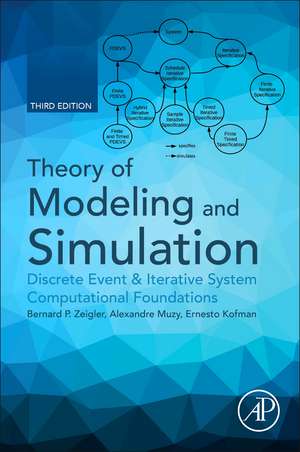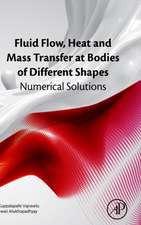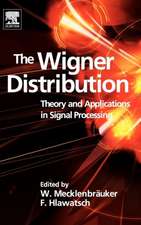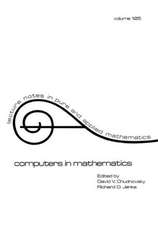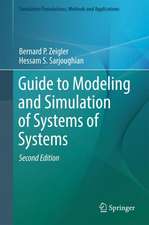Theory of Modeling and Simulation: Discrete Event & Iterative System Computational Foundations
Autor Bernard P. Zeigler, Alexandre Muzy, Ernesto Kofmanen Limba Engleză Paperback – 16 aug 2018
New sections in this updated edition include discussions on important new extensions to theory, including chapter-length coverage of iterative system specification and DEVS and their fundamental importance, closure under coupling for iteratively specified systems, existence, uniqueness, non-deterministic conditions, and temporal progressiveness (legitimacy).
- Presents a 40% revised and expanded new edition of this classic book with many important post-2000 extensions to core theory
- Provides a streamlined introduction to Discrete Event System Specification (DEVS) formalism for modeling and simulation
- Packages all the "need-to-know" information on DEVS formalism in one place
- Expanded to include an online ancillary package, including numerous examples of theory and implementation in DEVS-based software, student solutions and instructors manual
Preț: 586.51 lei
Preț vechi: 644.51 lei
-9% Nou
112.24€ • 115.95$ • 93.41£
Carte tipărită la comandă
Livrare economică 19 martie-02 aprilie
Specificații
ISBN-10: 0128133708
Pagini: 692
Dimensiuni: 191 x 235 mm
Greutate: 1.17 kg
Ediția:3
Editura: ELSEVIER SCIENCE
Public țintă
Undergraduate students and graduate students, especially PhD students, researchers, and all workers in computational-based fields benefiting from modeling and simulation, both traditional and non-traditionalCuprins
Part I Basics: Modeling Formalisms and Simulation Algorithms1. Introduction to Systems Modeling Concepts
2. Framework for Modeling and Simulation
3. Modeling Formalisms and Their Simulators
4. Introduction to DEVS
5. Hierarchy of System Specifications
6. Basic Formalisms: DEVS, DESS, DTSS
7. Basic Formalisms: Coupled MultiComponent Systems
8. Simulators for Basic Formalisms
9. Multi-Formalism Modeling and Simulation
Part II Iterative System Specification
10. Introduction to Iterative System Specification
11. Basic Iterative System Specification
12. Iterative Specification Subformalisms
13. Finite and Timed Iterative Specifications
Part III System Morphisms: Abstraction, Representation, Approximation
14. Parallel and Distributed Discrete Event Simulation
15. Abstraction: Constructing Model Families
16. Verification, Validation, Approximate Morphisms
17. DEVS and DEVS-like Systems
18. Quantization-Based Simulation
19. DEVS Representation of Iteratively Specified Systems
Part IV Enhanced DEVS Formalisms
20. DEVS Markov Modeling and Simulation
21. DEVS Markov Model Lumping
22. Spiking Neuron Modeling- Iterative Specification
23. Open Research Problems
Recenzii
Descriere
Theory of Modeling and Simulation: Discrete Event & Iterative System Computational Foundations, Third Edition, continues the legacy of this authoritative and complete theoretical work. It is ideal for graduate and PhD students and working engineers interested in posing and solving problems using the tools of logico-mathematical modeling and computer simulation. Continuing its emphasis on the integration of discrete event and continuous modeling approaches, the work focuses light on DEVS and its potential to support the co-existence and interoperation of multiple formalisms in model components.
New sections in this updated edition include discussions on important new extensions to theory, including chapter-length coverage of iterative system specification and DEVS and their fundamental importance, closure under coupling for iteratively specified systems, existence, uniqueness, non-deterministic conditions, and temporal progressiveness (legitimacy).
- Presents a 40% revised and expanded new edition of this classic book with many important post-2000 extensions to core theory
- Provides a streamlined introduction to Discrete Event System Specification (DEVS) formalism for modeling and simulation
- Packages all the "need-to-know" information on DEVS formalism in one place
- Expanded to include an online ancillary package, including numerous examples of theory and implementation in DEVS-based software, student solutions and instructors manual
